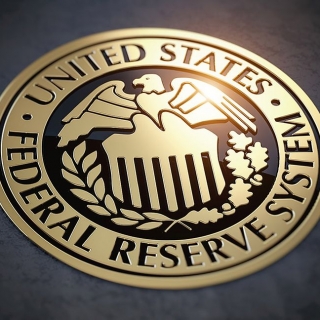


The U.S. central bank, to President Donald Trump's chagrin, will likely leave interest rates unchanged at a policy meeting this week, but that's not to say there won't be a vigorous debate, with one if not two Federal Reserve governors possibly casting a rare dissent in support of lower borrowing costs.
The majority of Fed policymakers, though, remain concerned that Trump's tariffs could undo progress on bringing inflation back to the central bank's 2% goal, outweighing for now worries about the labor market.
The trade deal struck between the U.S. and Japan last week, with tariffs set at 15%, and reported progress for a similar rate in talks with the European Union make it more likely that import duties overall will end up well below the punishing levels Trump announced on his April 2 "Liberation Day."
Even so, U.S. tariffs are at their highest level in 90 years, and the effects are starting to show up in household purchases. A surge in prices of goods like furnishings and apparel helped drive overall consumer inflation to an annualized 3.5% pace in June.
So soon after a bout of 40-year-high inflation, policymakers fear fast-rising prices could "freak out" households, as Chicago Fed President Austan Goolsbee sometimes phrases it, triggering a wider inflationary spiral.
While Fed Chair Jerome Powell says that is only one of many possible scenarios, he has argued the central bank can wait to learn more before adjusting rates, especially with a 4.1% unemployment rate near or below estimates of full employment.
Other data and the outlook amid Trump's broader economic program, including tax cuts and deregulation, invite differing views on the central bank's policy-setting Federal Open Market Committee.
"Considering the clear divergence in the near-term policy outlook between (Fed Governor Christopher) Waller and (Fed Vice Chair of Supervision Michelle) Bowman and the other FOMC participants, we expect both Waller and Bowman to dissent in favor of a 25-bp (basis-point) cut," wrote analysts at Nomura Securities, one of several Wall Street firms predicting the first double dissent from Fed governors since 1993.
Both Waller and Bowman were appointed to the Board of Governors by Trump, who has excoriated Powell for resisting the White House's demand for an immediate rate cut and broached the idea of firing the Fed chief before his term expires next May.
Last week, during a rare but tense visit to the Fed's headquarters in Washington, Trump once again pressed the case for lower rates, though he also said he didn't think it was necessary to fire Powell.
Waller, who has been mentioned as a possible successor to Powell, sees private-sector job growth nearing stall speed and fears companies could turn to layoffs in the absence of easier credit conditions.
Private-sector hiring accounted for just half of the gain of 147,000 U.S. jobs in June, and Waller says other data suggests even that reading overestimates the true increase. Bowman has also expressed worries about labor market deterioration and feels a rate cut may be needed to prevent it.
Source: Investing.com
Japan's annual inflation rate edged down to 2.9% in November 2025 from October's 3-month high of 3.0%. Core inflation stood at 3.0%, keeping the same pace as in October and aligning with estimates. Mo...
Goldman Sachs sees gold prices climbing 14% to $4,900 per ounce by December 2026 in its base case, it said in a note on Thursday, while citing upside risks to this view due to a potential broadening o...
The BRICS group of countries is increasingly being considered as an alternative for global diplomacy and cooperation amidst increasing tariff and protectionist policies from the United States. A numbe...
Applications for US unemployment benefits fell after a spike in the previous week, underscoring the choppy nature of the data at this time of year. Initial claims decreased by 13,000 to 224,000 ...
Annual inflation in the United States (US), as measured by the change in the Consumer Price Index (CPI), fell 2.7% in November, according to a report by the US Bureau of Labor Statistics (BLS) on Thur...
Gold (XAU/USD) Gold (XAU/USD) regains ground on Friday, edging modestly higher after earlier weakness, even as a resilient US Dollar (USD) caps upside momentum. At the time of writing, XAU/USD trades around $4,345, recovering from a daily low near...
Oil prices are headed for a second weekly decline as concerns over a growing oversupply outweigh geopolitical risks to supply. Brent crude edged up to $60 a barrel on Friday but is still down about 2% for the week, while West Texas Intermediate is...
President Vladimir Putin said he is willing to discuss ending Russia's war in Ukraine, despite rejecting changes sought by Kyiv and Europe to the U.S. peace plan drafted with Moscow. Putin said he has "practically agreed" to the proposals to end...
 Fed Governor Christopher Waller said Wednesday that the Fed is in no rush to cut interest rates, given the current outlook, according to...
Fed Governor Christopher Waller said Wednesday that the Fed is in no rush to cut interest rates, given the current outlook, according to...
 The Bank of Japan (BOJ) is expected to raise interest rates on Friday to a three-decade high, from 0.5% to 0.75%, signaling readiness for further...
The Bank of Japan (BOJ) is expected to raise interest rates on Friday to a three-decade high, from 0.5% to 0.75%, signaling readiness for further...
 European stocks closed lower on Tuesday, with the STOXX 50 down 0.5% and the broader STOXX 600 slipping 0.4%, as optimism around Russia–Ukraine...
European stocks closed lower on Tuesday, with the STOXX 50 down 0.5% and the broader STOXX 600 slipping 0.4%, as optimism around Russia–Ukraine...
 The United States ordered a blockade of Venezuelan oil tankers because the Trump administration believes President Nicolás Maduro's regime is acting...
The United States ordered a blockade of Venezuelan oil tankers because the Trump administration believes President Nicolás Maduro's regime is acting...